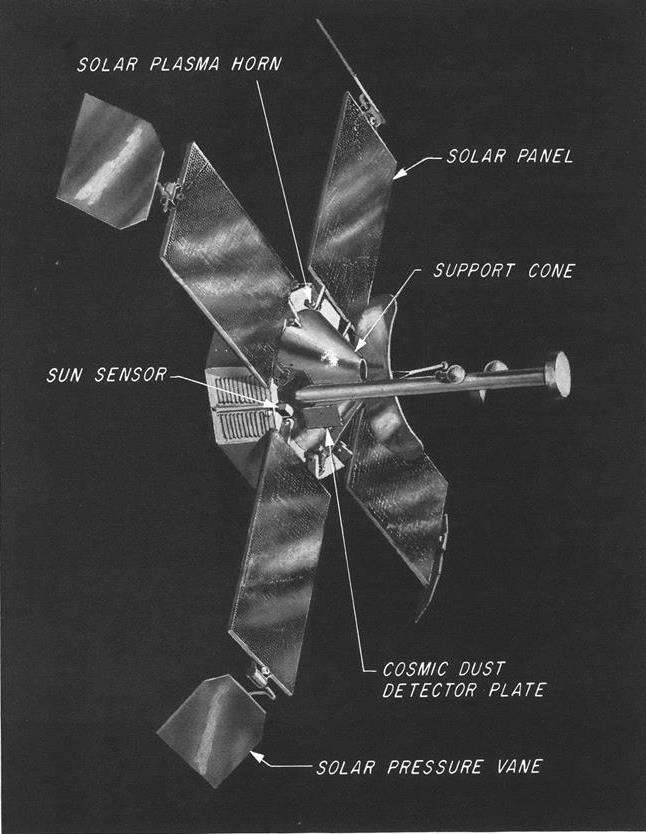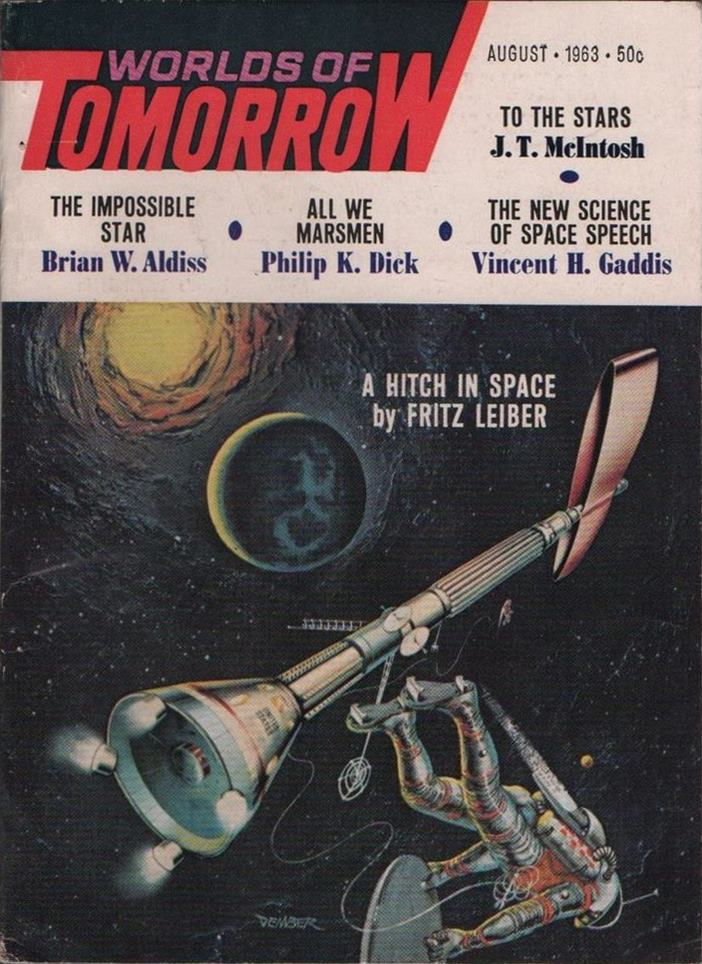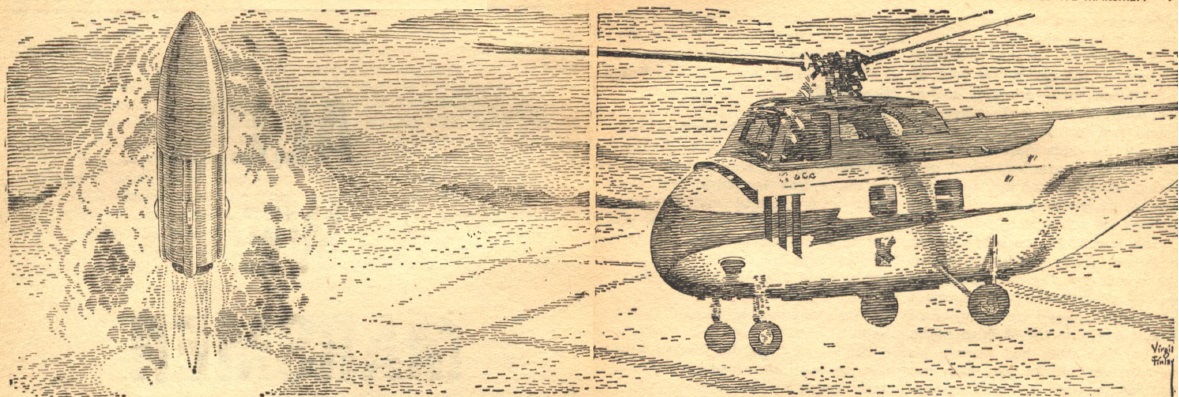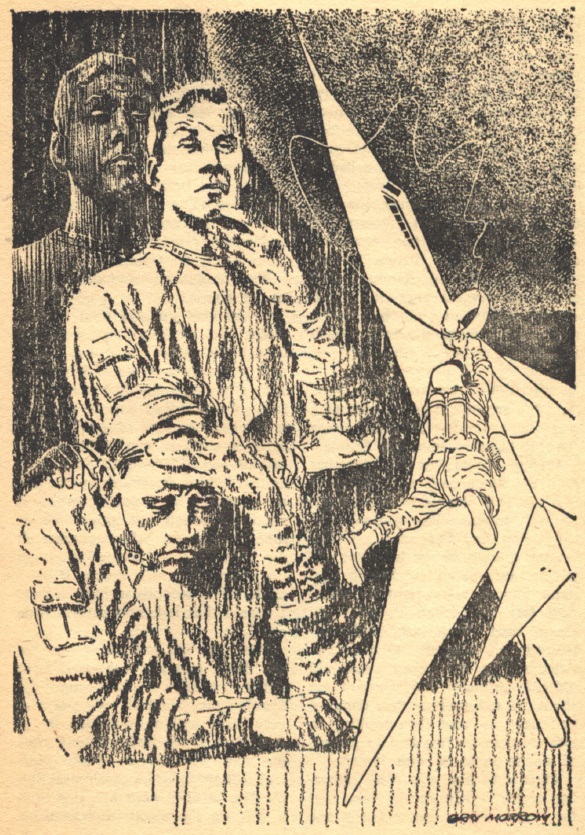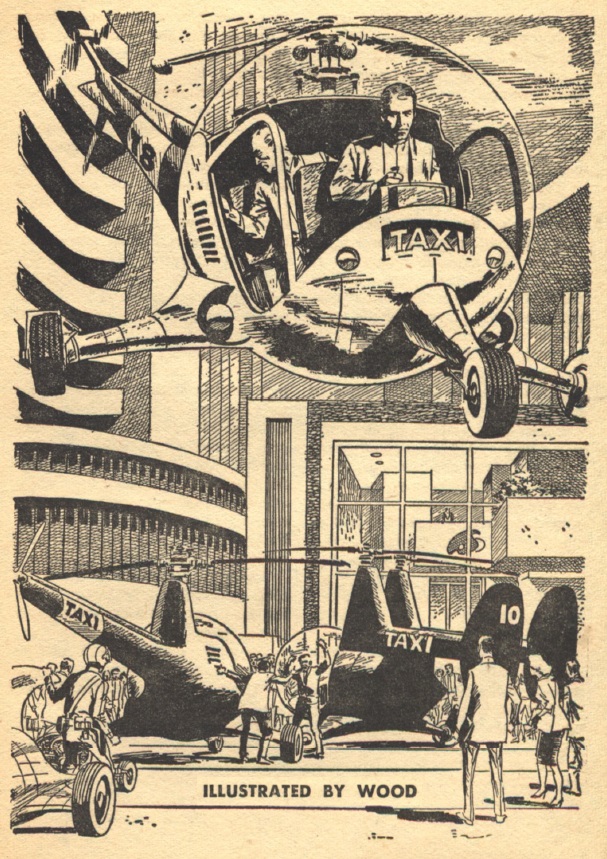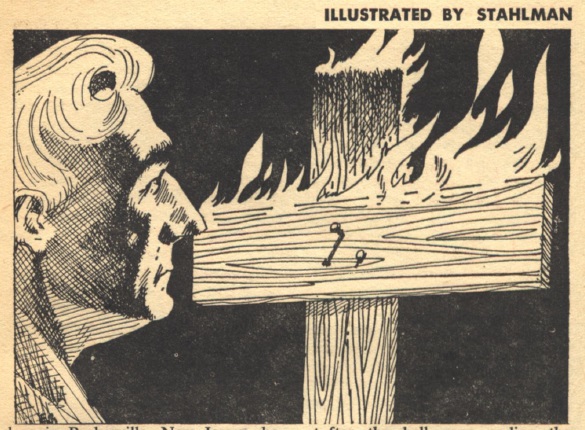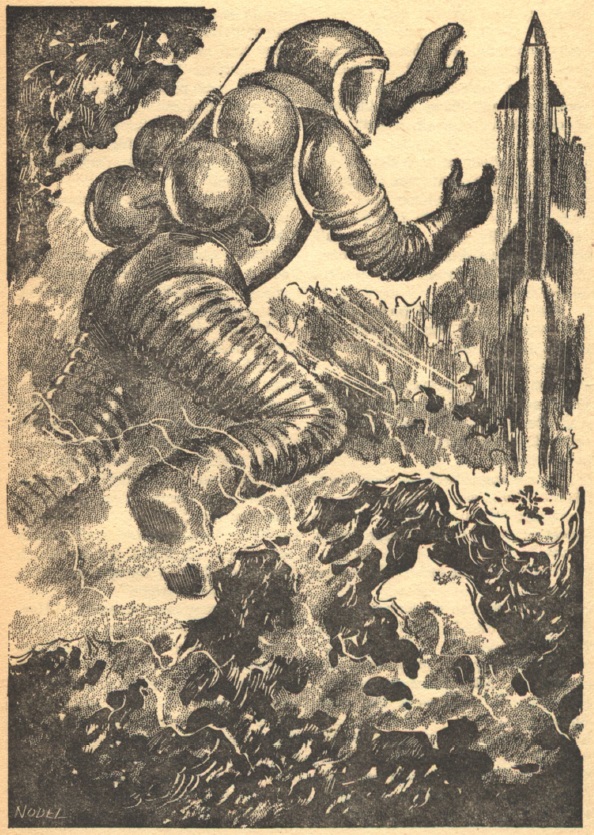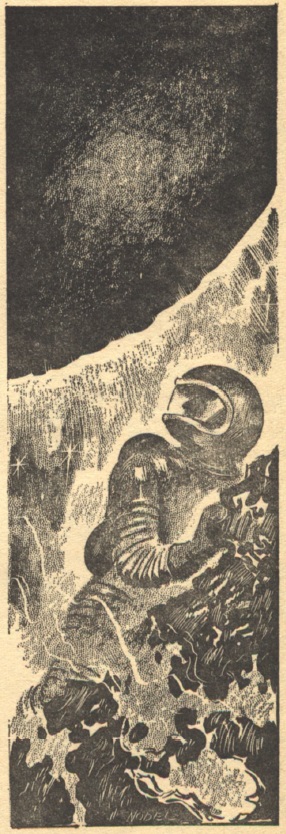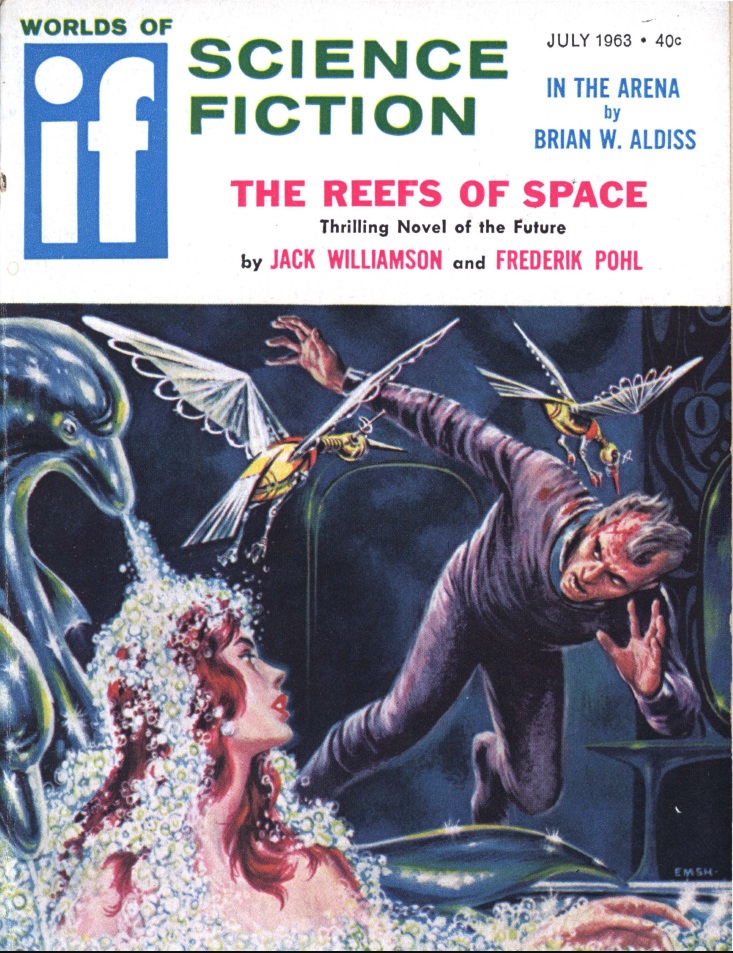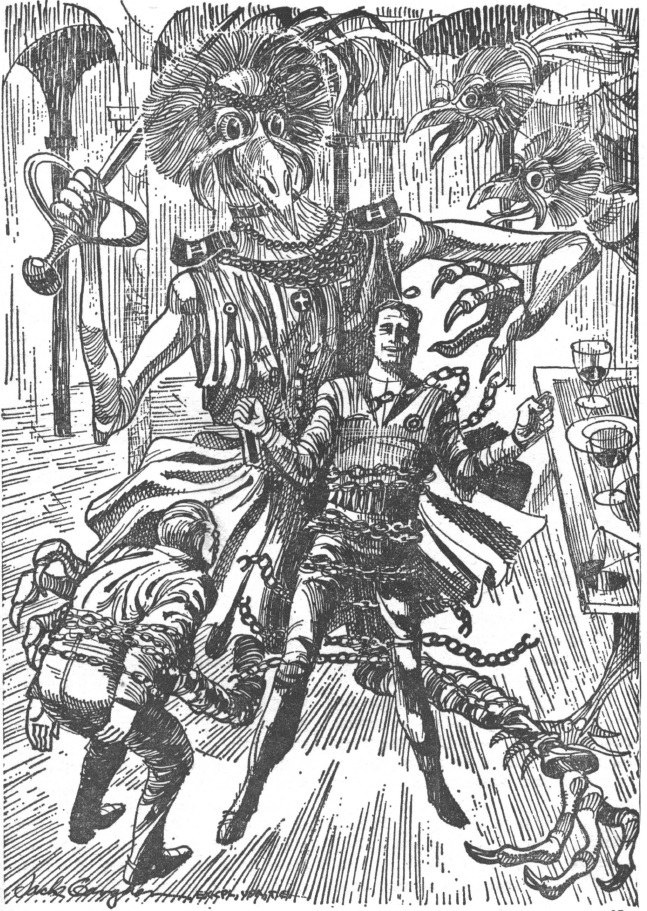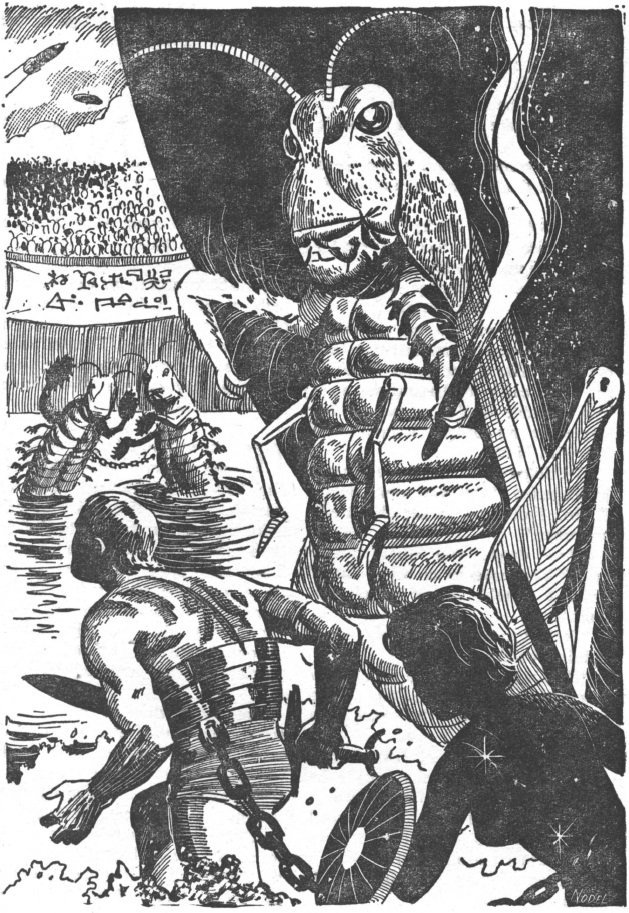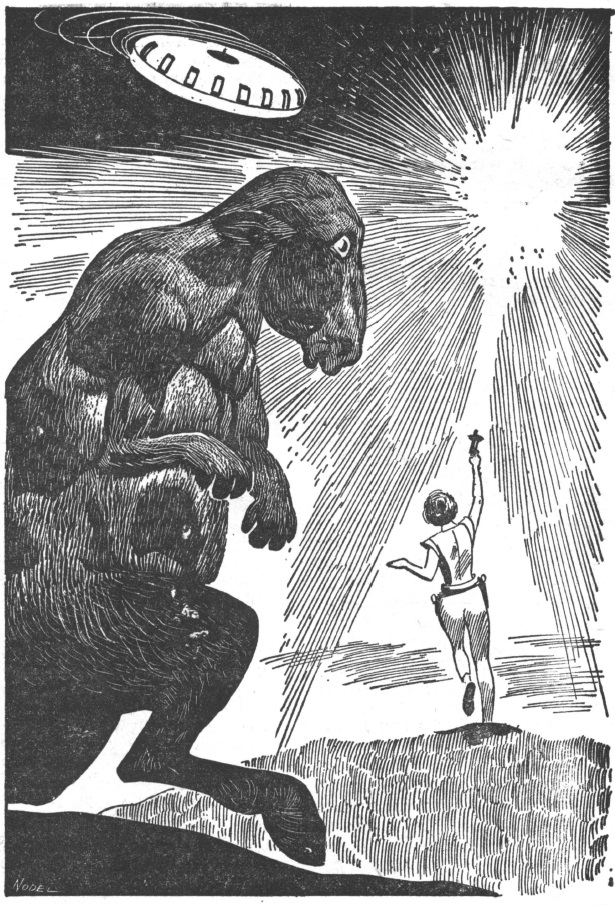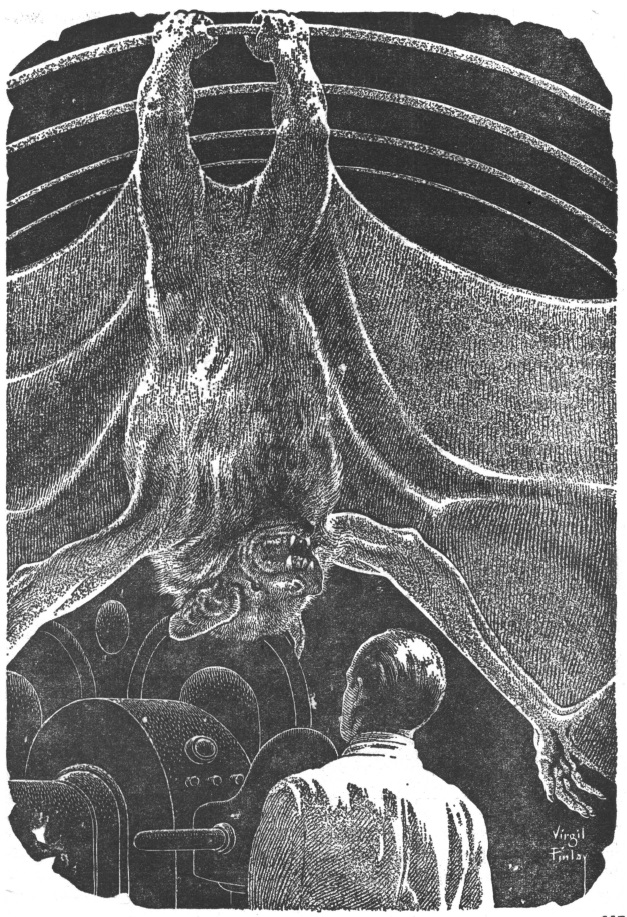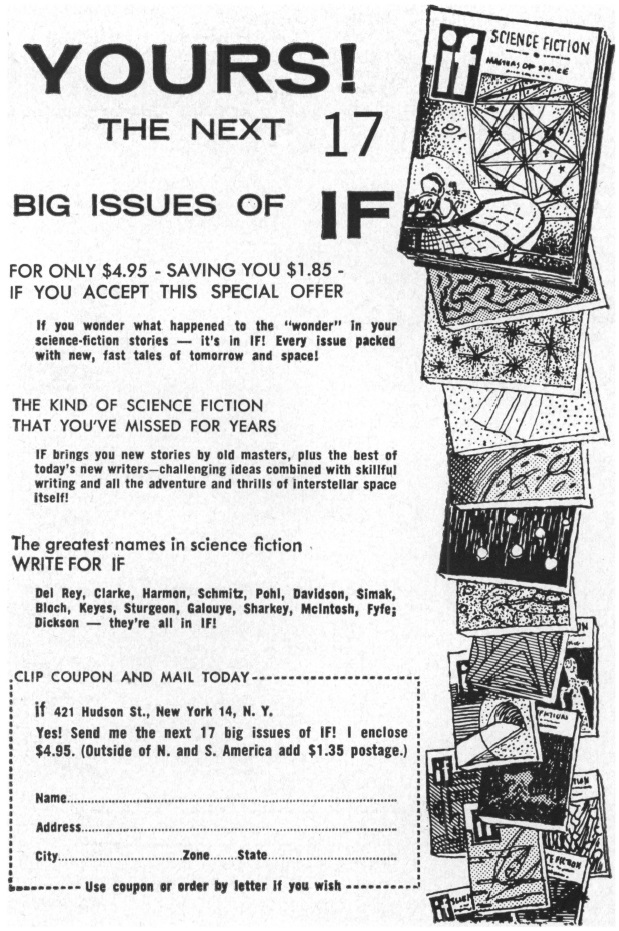
by Gideon Marcus
It's Spreading
25 years ago, a group of fen met in New York for the first World's Science Fiction Convention. Now, conclaves are springing up all over the nation (and internationally, too). Just this weekend, I attended a small event ambitiously titled San Diego Comic Fest. It was a kind of "Comics-in," where fans of the funny pages could discuss their peculiar interests: Is Superman better than Batman? Are the X-Men and the Doom Patrol related? Is Steve Ditko one of the best comics artists ever?
I was there as an invited guest to speak on the current state of comics and science fiction. I understand that the proceeding was filmed and may even be broadcast on local television. When that happens, I shall be sure to give you a heads up.
Slinging my new color camera, I took photos of some of the new friends I made. There was also excellent space-themed decor, which I had to capture for posterity. Many thanks to my friends with the private dark room who developed these prints so quickly for publication:

Posters lining the bar at the Lunar Lounge

Mercury meets Sputnik

The Young Traveler (initials L.E.M.) poses with a mock-up of the Apollo LEM

Alvin of the Chipmunks (his name really is Alvin!)

The artist known as Napoleon Doom

The Traveler with a familiar face

A beautiful, newly commissioned drawing of Dr. Martha Dane, the Journey's unofficial mascot
While the con possessed many superlative qualities, I think my fondest memories involved reading the latest issue of Galaxy, sitting in the lobby of the event hotel, listening to one of the fans play an endless medley of classic and new tunes on the piano. With that, I suppose it's appropriate I tell you about what I read…
The Issue at Hand

Cover by Sol Dember illustrating Final Contact
The Boy Who Bought Old Earth, by Cordwainer Smith

For years, Cordwainer Smith has teased us with views of his future tales of the Instrumentality, the rigid, computer-facilitated government of Old Earth. We've learned that there are the rich humans, whose every whim is catered to. Beneath them, literally, are the Underpeople — animals shaped into human guise (a la Dr. Moreau) who live in subterranean cities. A giant tower, miles high, launches spaceships to the heavens, spreading the Instrumentality to the hundreds of settled stars of the galaxy. All but one, the setting of Smith's newest book.
Old North Australia stands alone, an island in an Instrumentality-dominated sea of space. On that grey, dusty world, its inhabitants still pledge fealty to the Queen of the British Commonwealth (she and that confederation dead some 15,000 years). What enables this world, dubbed "Norstrilia," to stand alone? Like Frank Herbert's Arrakis, Norstrilia is the sole producer of the longevity drug, stroon. This has made Norstrilia fantastically wealthy, able to produce the most lethal of defenses (including Mother Hitton's Littul Kittons).
Our viewpoint in Boy is Rod McBan, a protagonist with a problem. The scion of one of Norstrilia's oldest and richest families, he has been barred from achieving adulthood for his inability to communicate telepathically with his peers. Four times the boy has lived to the age of sixteen; three times, he has had his memories erased in the hopes that Rod might develop the appropriate mental gifts to participate meaningfully in society. Failure to do so a fourth time means judgment by tribunal and possible sentence to death.
How Rod escapes this fate and turns around his fortune so entirely (figuratively and literally) such that he becomes possessor of the Manhome, Old Earth itself, is an interesting tale I shan't spoil. I can, however, share my thoughts on the story's execution.
Smith is one of the more unusual authors out there. Having been raised in pre-Communist China and then employed by intelligence agencies, Smith has much more experience with non-Western cultures. This shows up in his writing, with the Instrumentality and its denizens a fair bit further from the norm of SF societal depictions.
The author is hampered, however, by choosing Norstrilia as his setting. The planet is prosaic, deliberately so by choice of the inhabitants. Missing is that lucid dream-like quality Smith has imparted his other Instrumentality stories.
Moreover, the novel is very short, and it ends abruptly just as it's getting interesting. I suspect the piece has been cut for space. The result is just two thirds of a story arc.
For these reasons, I give Boy 3.5 stars and hope that a fuller rendition comes out in proper book form. Perhaps, like Heinlein's Starship Troopers, this will turn a flawed gem into a masterpiece.
Earth Eighteen, by Ernst Mason

After finishing the serious, humorless piece that was Boy, it was quite a jolt to be thrown into this comedy article, a tourguide for aliens visiting a ruined and mostly depopulated Earth. Thus, it took me a while to slow down and get into the thing, but once I did, I found moments of genuine cleverness. The Gaughan pictures are cute, too.
Three stars.
For Your Information, by Willy Ley

The non-fiction article this month deals with statistical bell curves: the phenomenon whereby any set of things (height of people, size of noses, width of beans) falls within boundaries with the most common incidence being right in the middle. It's not a bad piece, but it's short and ends abruptly.
Three stars.
The End of the Race, by Albert Bermel
If you've read the recent novel (soon to be movie) Fail-safe, then you know the ending to this story, a farcical piece about negotiated disarmament between the superpowers. It was better when it wasn't played for laughs, and not very good laughs at that.
Two stars.
Final Encounter, by Harry Harrison

Now here is the real gem of the book, and a real departure from the norm. Ship's captain Hautamaki, of the race of Men, takes aboard a married pair of more conventionally human anthropologists, Gulyas and Tjond. Their mission: to make first contact with aliens. The extraterrestrials have left tantalizing clues of their existence, beacons on various worlds pointing to one star in the galaxy. Friction quickly erupts amongst the crew. Tjond, the sole woman, finds Hautamaki's insistence on nudity disturbing. And she cannot comprehend at all the society of Men, which includes no women, involves marriage, love, and production of children by homosexual union alone.
Worse yet, Hautamaki insists on jettisoning all weaponry and adopting a completely peaceful posture when approaching the aliens. His reasoning is that the threat of violence could jeopardize the contact, and if the aliens prove hostile even in the face of no provocation, well, the next mission will be so alerted.
I absolutely loved this story. It possessed that well-executed strangeness that I'd sort of expected from the Smith. I appreciated that it was the Man who was the gentle pacifist. And, as in Evelyn Smith's They Also Serve, a homosexual man is key to a peaceful first contact. But unlike Smith's story, this is the first instance in SF (aside from Sturgeon's The World Well Lost from 1953) where the homosexuality is explicit — and completely unapologetic.
How times have changed. Five stars.
At the Feelies, by Jack Sharkey
At the con, I had a discussion with a fellow who mused on the future of movies. After silent films came talkies. Then color, 3-D, "Sens-o-rama," and so on. It was timely, then, that I read this piece right after. It's a (fictional) review of Gone with the Wind redone such that the audience can feel and smell from the point of view of the actors — a technology with mixed blessings, as you can imagine.
It's cute. Three stars.
Soft and Soupy Whispers, by Sydney Van Scyoc

Van Scyoc offers up a typically macabre piece about a mentally disturbed man whose insanity is kept under control through the installation of a mental companion. In essence, the fellow is made sane through schizophrenia. It's subtle and interesting, but a bit obtuse and more artful than plausible.
Three stars.
The Blasphemers, by Philip José Farmer

Last up is another piece from left field, this one dealing with a race of centaurs that possesses four sexes, all of which are necessary to produce (and capable of bearing) children. The aliens are an advanced, starfaring race. Highly religious, they venerate the spirits of their ancestors, holding sacred the statues of their elders. One iconoclast leads his mated quartet to a shrine and proceeds to make love amongst the monuments.
He is caught and brought before a judge, but instead of being sentenced to immolation, he is congratulated for his heresy and informed that the state religion is bunk, actually a tool to justify the conquest of planets: one of the faith's tenets is that an early ancestor left statues of himself on planets to be colonized by the race; such statues were actually carved recently by advance scouts.
Our protagonist is then made a ship's captain and dispatched to colonize as many worlds as he and his companions can, until common sense prevails over faith and the old order is toppled.
Particularly interesting about this piece is the assertion that religious faith is instilled by nature, not nurture. Like sexual preference, one can't help one's feelings on the subject, the story says.
Ambitious and laudable as Farmer's goals are in this piece, his execution is workmanlike. Ted Sturgeon once called Farmer an author who always almost gets it right, and that record continues with The Blasphemers. I suppose Harrison can't write all the iconoclastic tales.
Three stars.
Summing Up
With just one very short clunker in the mix, and despite the (relative) disappointment of the Smith novel, the April 1964 Galaxy is a welcome departure from the standard. I'm impressed. What wonders await us in two months?

[Come join us at Portal 55, Galactic Journey's real-time lounge! Talk about your favorite SFF, chat with the Traveler and co., relax, sit a spell…]

![[March 9, 1964] Deviant from the Norm (April 1964 <i>Galaxy</i>)](https://galacticjourney.org/wp-content/uploads/2019/03/640309cover-672x372.jpg)

![[February 17, 1964] Breaking Taboos (April 1964 <i>Worlds of Tomorrow</i>)](https://galacticjourney.org/wp-content/uploads/2019/02/6312017cover-672x372.jpg)

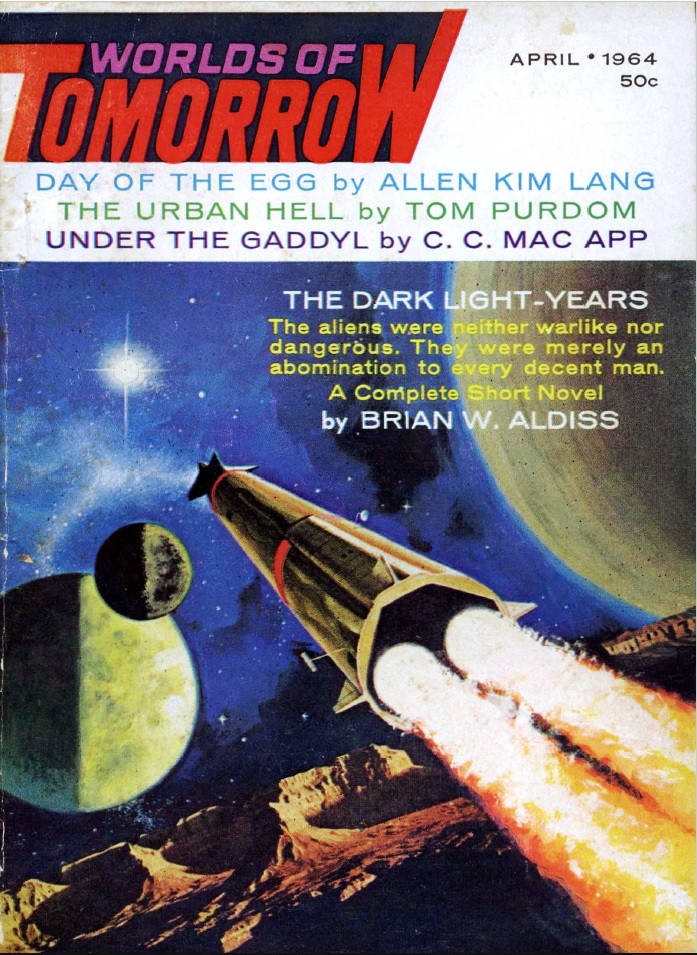
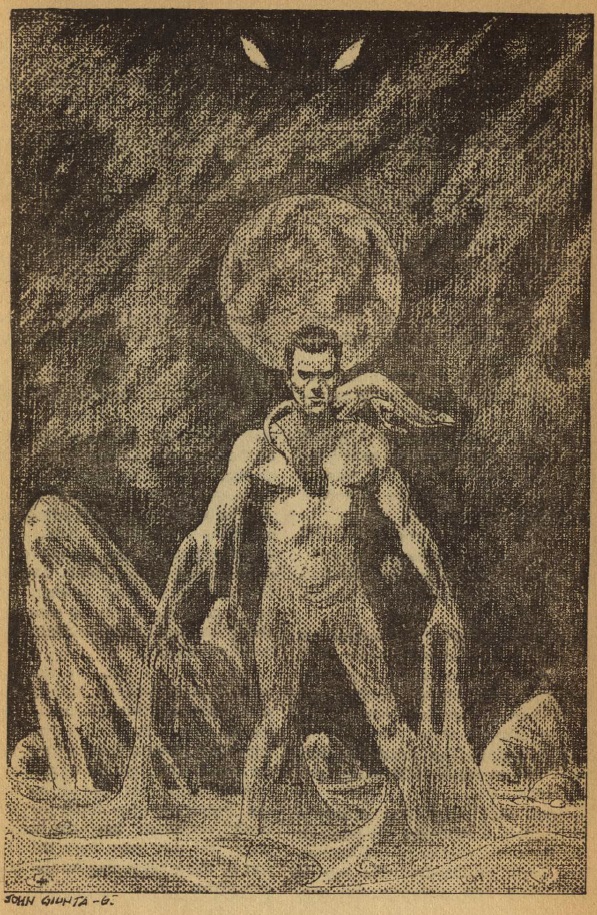
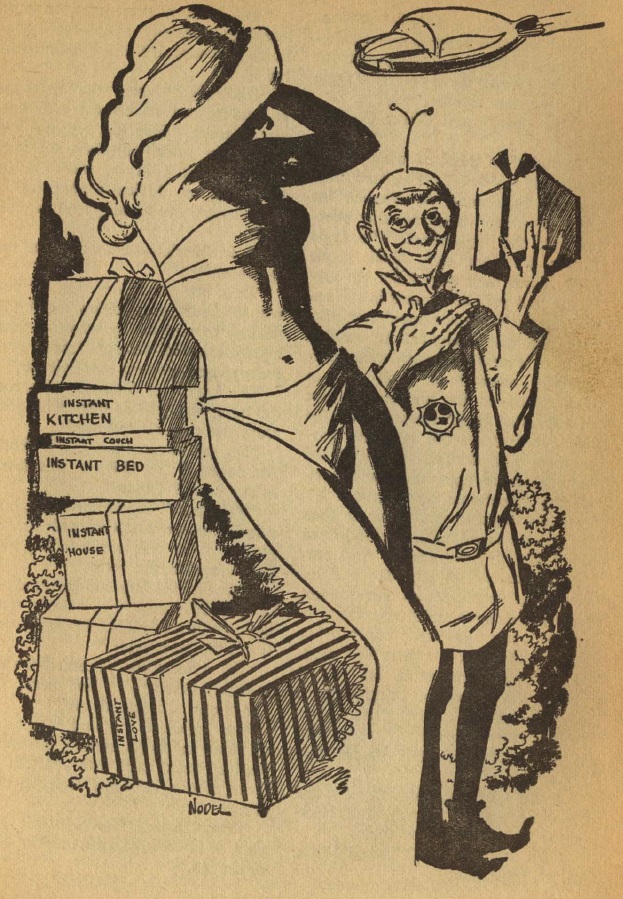
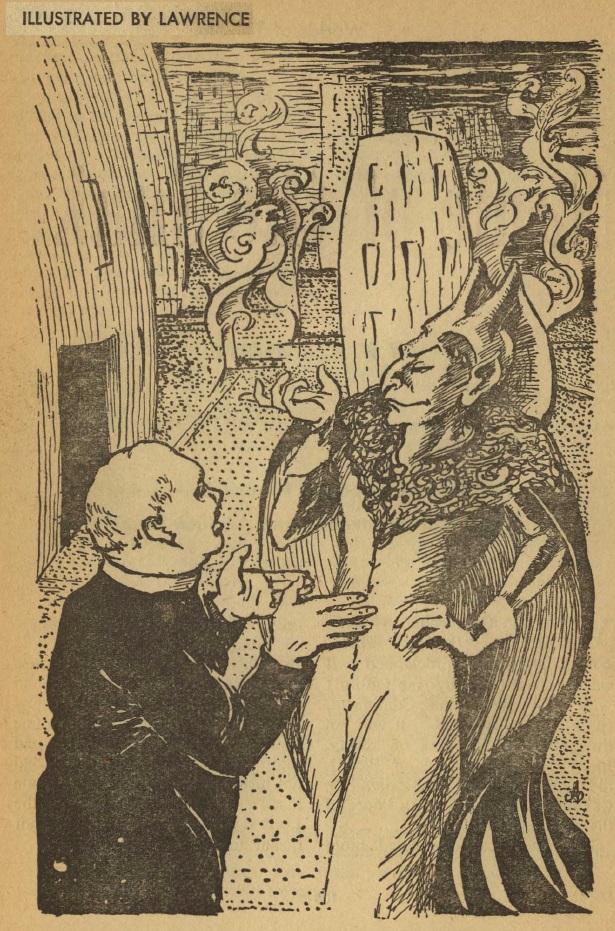
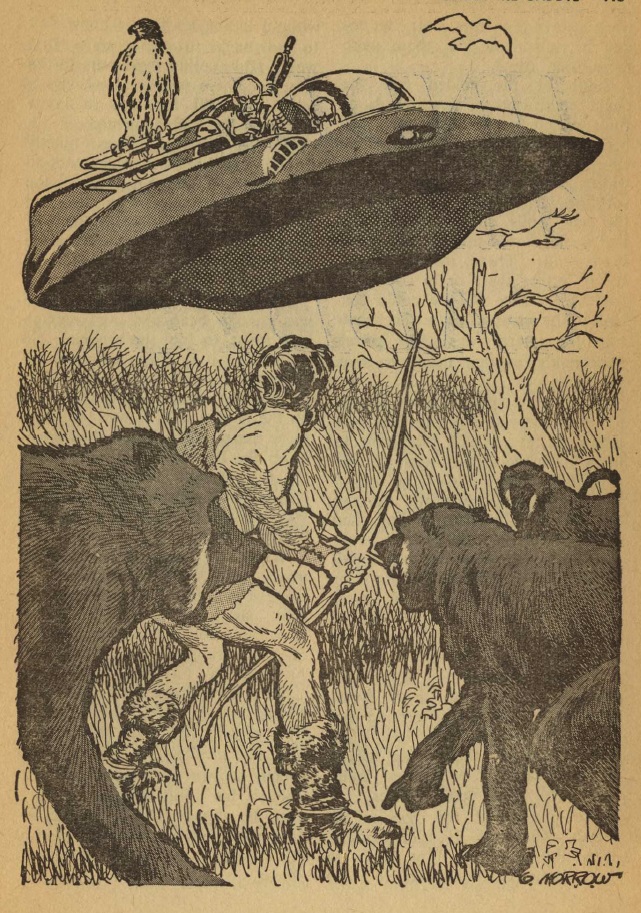
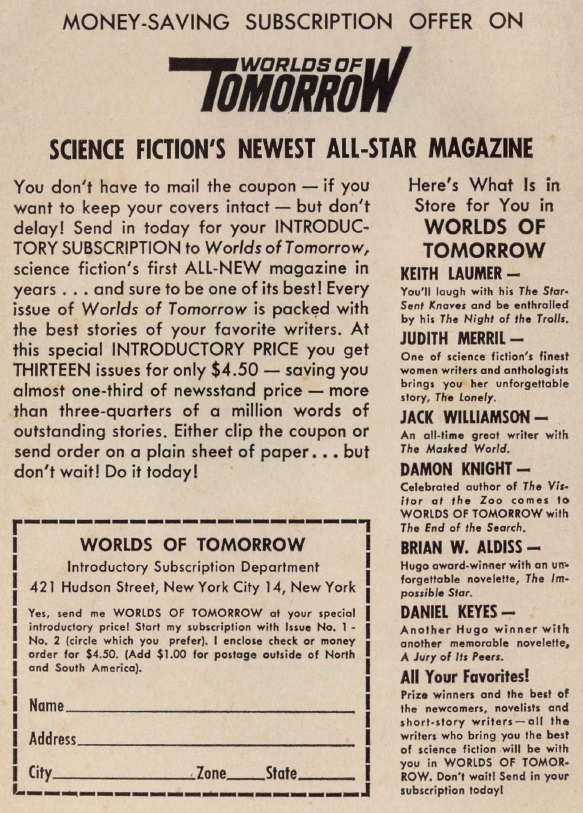
![[December 17, 1963] The Ink-and-Paper Zoo (February 1964 <i>Worlds of Tomorrow</i>)](https://galacticjourney.org/wp-content/uploads/2018/12/6312017cover-672x372.jpg)







![[October 18, 1963] Points of View (December 1963 <i>Worlds of Tomorrow</i>)](https://galacticjourney.org/wp-content/uploads/2018/10/631018cover-485x372.jpg)







![[October 8, 1963] The Big Lemon (November 1963 <i>IF</i>)](https://galacticjourney.org/wp-content/uploads/2018/10/631008cover-474x372.jpg)








![[August 16, 1963] Time and Time Again (October 1963 <i>Worlds of Tomorrow</i>)](https://galacticjourney.org/wp-content/uploads/2018/12/630816WRLDSOCT1963-461x372.jpg)















